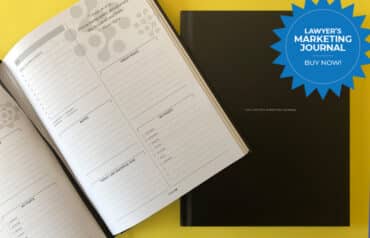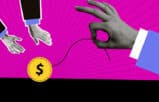Lots of articles teach interviewees how to manage an interview, what questions the interviewee can expect, and the glib answer that is supposed to show off the interviewee in the best light. One of the problems with the interview process is that, indeed, these questions are the ones prospective employers are asking and interviewees are preparing for. Guidance for the interviewer is seen less often.
Once that applicant has become an employee, sometimes the smoothest interview talker can become a human resources nightmare.
The Killer Question
Whether you are hiring staff, a law student who has not gone through your summer associate program or a lateral, this question can help you discover the inner candidate:
“What is the last book you read?”
People who read have broad vocabularies. They know how to spell. They have a sense of curiosity. Answers like, “I don’t read books; I read magazines” or “I work so hard, I don’t have time to read anything outside of work” should set off your mental alarm bell. Even the busiest attorneys can catch up on their reading while on vacation if that is their priority.
Most candidates will name a book. The answer can trigger a conversation about the book, the genre, and a range of other questions that highlight the applicant’s views and personality. That could include information pertinent to the hiring process that the interviewer is legally barred from directly asking about. (But do be careful; for example, “Does your spouse also enjoy science fiction?” is still forbidden.)
The response to “Do audiobooks count?” is a qualified yes.
Of course, people are busy, and it’s good that your candidate is making good use of time in the car or on public transportation. The huge number of available audiobooks can satisfy the widest curiosity range. Audiobooks can introduce the listener to new vocabulary, though logistics can prompt the listener to “read through” unfamiliar words rather than look them up. E-books make it easy for a reader to stay in the app to look up a definition and not even lose one’s place. Audiobook listeners can’t see how unfamiliar words are spelled, though they can hear the correct pronunciation, which is a plus.
Respect This Answer
Recruiters and employers keep trying to come up with the question that really exposes the interviewee’s personality and attitude. The most ridiculous ones have become infamous. For example, Urban Outfitters reportedly asks, “You’re a new addition to the crayon box; what color would you be and why?” Recruiters and interviewees alike hope you will refrain from these tactics.
If you do decide to go with an off-the-wall question, one like this could be revealing:
“Sheryl Sandberg, the chief operating officer of Meta Platforms, preaches that ‘done’ is better than ‘perfect.’ Do you agree?”
The answer could tell you a lot about how the candidate views deadlines, billing and how many drafts are enough.
However, the best answer to this question and others of its ilk is:
“It depends.”
For many questions, “It depends” shows that the candidate appreciates that cases present nuanced situations. This answer will certainly be followed with an explanation that can tell you more about what to expect from this person than canned questions like, “Tell me about your biggest mistake.” (Canned answer: “I work too hard.”)
Perfection Is Unattainable
Interviewing is an art, one that you will get better at the more you do it. Certainly, you will develop your own list of questions that work for your workplace, and your own sense of which answers ring hollow. Every employer has made a hiring mistake, so don’t beat yourself up about it when it happens.
Illustration ©iStockPhoto.com
For more of Teddy’s tips, read Get to the Point, here.
For more on hiring, check out the Attorney at Work articles here.
Use the Power of Journaling to Build a Better Practice
Journaling offers intellectual, organizational and anxiety-reducing benefits that can improve your outlook, your decision-making and your focus. Every element of the Lawyer’s Marketing Journal was designed to help you center your thoughts, prioritize your daily tasks, capture your great ideas and accomplishments — and feel a bit less stressed about it. Take advantage of the power of journaling to build your practice.


















